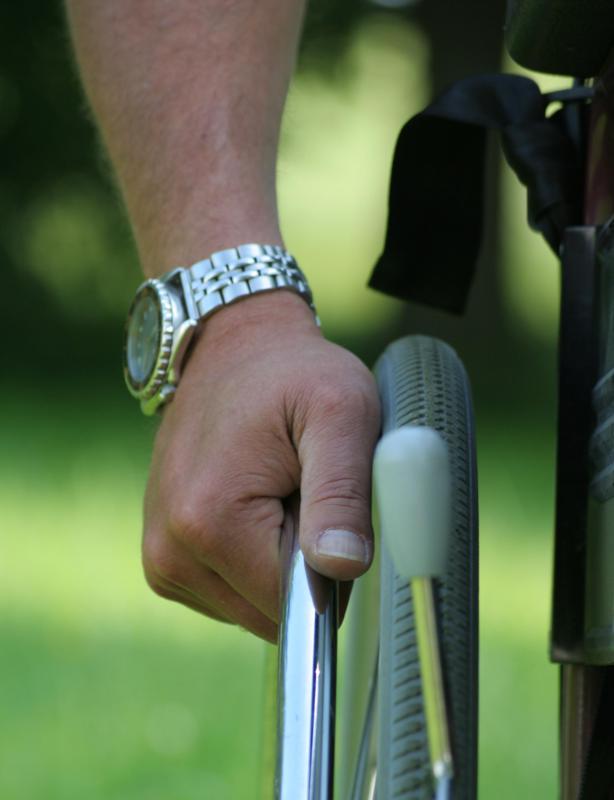At WiseGEEK, we're committed to delivering accurate, trustworthy information. Our expert-authored content is rigorously fact-checked and sourced from credible authorities. Discover how we uphold the highest standards in providing you with reliable knowledge.
What Is Orthopedic Impairment?
One of the United States' well-known laws, the Individuals with Disabilities Act (IDEA), helps to establish definitions and guidelines for schools and government agencies about how children with disabilities must be supplied with learning aids during their education. Under IDEA, an orthopedic impairment would include any disease or injury that produces musculoskeletal disabilities, neuromotor issues, or any physical challenge that might interfere with learning. Orthopedic impairment is assessed through an extensive review process. The type of aid provided to a child with one of these physical impairments varies widely and is based on the findings of the review and each child’s individual needs.
Orthopedic impairment includes diseases or injuries that hinder the use of the muscles, joints, or bones. Some of the disorders that can cause musculoskeletal impairment include polio, muscular dystrophy, or injuries, including burns and fractures. A few examples of disorders causing neuromuscular injuries are brain or spinal injuries and the diseases cerebral palsy and spina bifida.

Musculoskeletal impairments can manifest as difficulties with muscular development and can cause poor fine- or gross-motor control. These problems can impact the child’s ability to write, move around the classroom, or participate in physical activities. Neuromuscular impairments may involve poor control of the nervous system that can manifest in a wide ranging array of problems, from paralysis to an inability to hold the head still or upright. Paralysis can interfere with learning on all levels, and head movement or neck weakness can hamper the concentration and ability to focus that is needed in learning.

Assessment of orthopedic impairment is a long process. First, the child’s physical impairments are reviewed and described by doctors and neurologists. In addition, an occupational or physical therapist will evaluate the impact of the child’s impairment on his ability to learn and move. A therapist may also be asked to evaluate how the child handles his disability in a social setting. Eventually, the completed evaluation will be reviewed by the school, and a plan will be developed to meet the child’s specialized needs.

Often a child with an orthopedic impairment will be provided with a special one-on-one teacher who will work with the child in the classroom and help her to physically move and learn. A child may also be given special devices to help them learn. This physical support may come in the form of a special keyboard and computer for a child unable to write and take notes or a specialized chair or wheelchair to allow the child to sit comfortably or move around the classroom with ease.
AS FEATURED ON:
AS FEATURED ON:















Discuss this Article
Post your comments